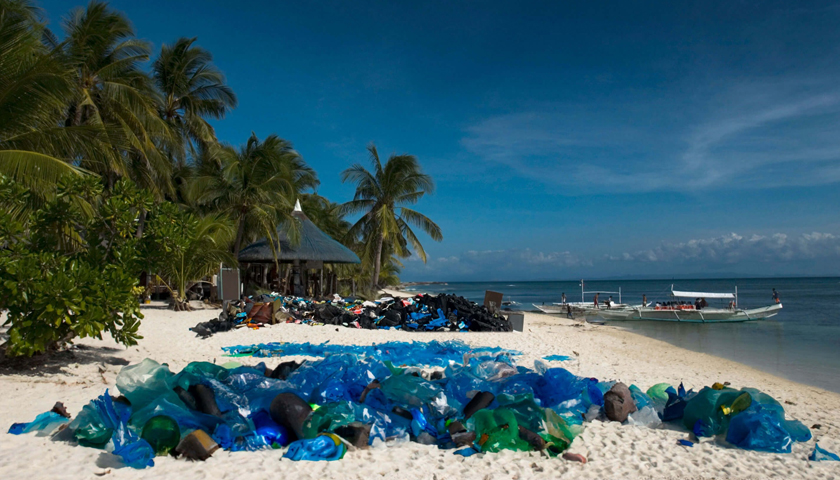A new study by Direct365, an essential business services provider, has uncovered the countries and industries contributing the most to ocean pollution, to help exemplify the extent of this global issue and what the future of our oceans could entail if we don’t invest in sustainable practices.
Analysing data, the research compiled how many tonnes of waste each county contributes to our oceans each year and how much this is predicted to rise to by 2050, the industries that need to step up their green initiatives and ways in which we can all work collectively to reducing the impact of waste in our oceans.
Ocean waste is predicted to rise 274% by 2050
In 2020, data confirmed that there are 1,223,850 tonnes of waste disposed in the ocean, with future predictions standing at a rise of 60.0% by 2030, 147.4% by 2040 and 274% by 2050.
As we start to see a staggering increase in ocean waste pollution, we believe there should be a bigger push to encourage recycling and more sustainable living.
Regarding demographics, Individuals born in the 2000s contributed the greatest amount of microplastic waste both offshore and along the shorelines, accounting for 37.73% and 37.33% respectively. This same age bracket also indicates the highest percentage of microplastic involvement. Those born between 2010 and 2015 have the most significant share in macro plastic waste.
In contrast, individuals born in the 1950’s have displayed the least contribution to plastic waste. Data shows that in general, plastic waste pollution reduces within older age brackets, highlighting how we must educate younger generations on the importance of remaining environmentally friendly.
Asia contributes to 83% of the world’s ocean waste
The top 10 worst countries contributing to plastic waste in the ocean are primarily from Asia. These top ten countries account for 83.22% of the total plastic waste emitted globally.
In 2019 the Philippines emitted 356,371 metric tonnes of plastic, topping the list globally. India closely followed with 126,513 metric tonnes. Future predictions show the Philippines reaching 2,410,328 million tonnes and India 855,675.10 tonnes.
The remaining countries collectively contribute less than 1% of waste each, making a relatively minimal impact on global pollution.
Economic structures, waste management policies and population densities all play a role in determining a countries waste contribution. No matter how big or small the contribution, it still needs to be minimised in order to safeguard our environment.
Only 3% of packaging is not wasted
Packaging generates 141 million tonnes of plastic waste, reflecting a 96.58% wastage rate. Furthermore, with inadequate recycling infrastructure and improper waste management services, it leads to plastic packaging being dumped in marine environments.
Consumer and institutional products exhibit plastic waste generation rates of 88.10% and 80.85% respectively. Industrial machinery and building and construction demonstrate lower waste generation percentages of 33.33% and 20% respectively. These sectors account for 302 million tonnes of plastic waste out of a total of 407 million tonnes.
Each industry, corporation and individual all have responsibilities to make moves towards a more sustainable future through actions like recycling and cleaning up the community. However, without education, awareness and resources it proves harder for people to do their bit for the environment.
Karl Bantleman at Direct365 said, “It is now becoming increasingly obvious that the ocean waste crisis demands urgent action. With 97% of our water being our oceans, it is essential governments and industries implement increased investment to tackle waste. With predictions that 6,624,600 tonnes of waste will live in our oceans by 2050, we must remember how important it is to do our bit at work and home and recycling is one of the easiest ways to ensure that we reuse material that would otherwise most likely end up in our oceans.”
One thing’s for certain and that we simply cannot continue emitting waste into our oceans at such scale. While this is a global issue that certain countries contribute significantly more to, implementation of waste management solutions should be taken from the ground up, starting within businesses, especially in those industries that contribute significantly to ocean pollution.”
